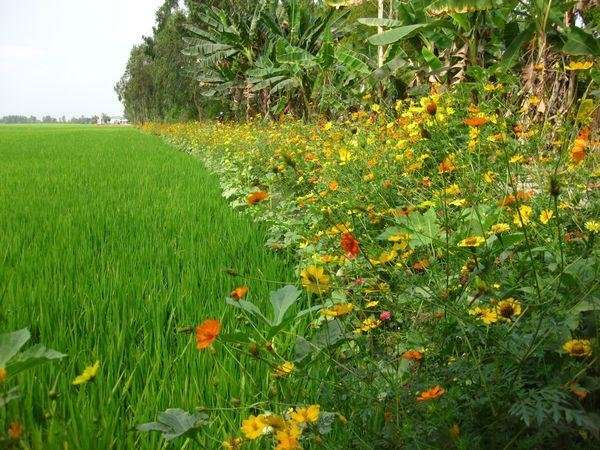Agro-ecology: A way for farming systems in the global South to adapt to climate and global change

While almost 80% of countries say they count agriculture as a possible way of mitigating climate change, the whole of sub-Saharan Africa—2 billion people to be fed by 2050—recognizes the need to adapt agriculture to climate change.
Agriculture could use the principles of agro-ecology to adapt and become more resilient while reducing its impact on climate. This is one of many conclusions drawn by a book on the agro-ecological transition within farming systems in the global South, to be published by Editions Quae on 3 January 2019.
"Agro-ecology involves optimizing biological regulation processes, managing natural resources rationally, and recycling nutrients" , François Côte, the book's coordinator, explains. "Organic farming, conservation agriculture, agroforestry, etc are all types of agro-ecological systems intended to ensure sustainable agricultural production and healthy, diverse food supplies." Agro-ecology is thus an essential part of any sustainable food system.
In the book, the authors identify two main types of levers for ensuring the agro-ecological transition within farming systems in the global South:
- the first is technical, and consists in using functional biodiversity to boost cropping or livestock system performance. Amongst other things, this serves to regulate pests naturally, hence to reduce pesticide use. The aim is also to ensure more efficient natural resource use (water, energy, soils, etc) and optimize bio-geochemical cycles to cut fertilizer use and reduce the risks of water pollution;
- the second is organizational and institutional, and uses the existing dynamics between producers and agricultural development players to establish agro-ecological systems, from a plot to a territory scale. The idea is to look into how to work together (range of players and power play issues, strategies and capacities) and into the support and innovation services required. This lever also encompasses the political aspects (roles and types of public action required) of the transition.
The authors are clear—and this is a message of hope—that substantial progress has been made in recent years on the technical and organizational pathways. However, they stress that the political authorities must now be brought on board to speed up the transition: "rolling out the agro-ecological transition over large areas means implementing specific national policies and ensuring that they promote the new services rendered by agriculture."
More information: Transition agro-écologique des agricultures du Sud. Coordinated by François-Xavier Côte, Emmanuelle Poirier-Magona, Sylvain Perret, Philippe Roudier, Bruno Rapidel, Marie-Cécile Thirion. Editions Quae, 2019
Provided by CIRAD
















